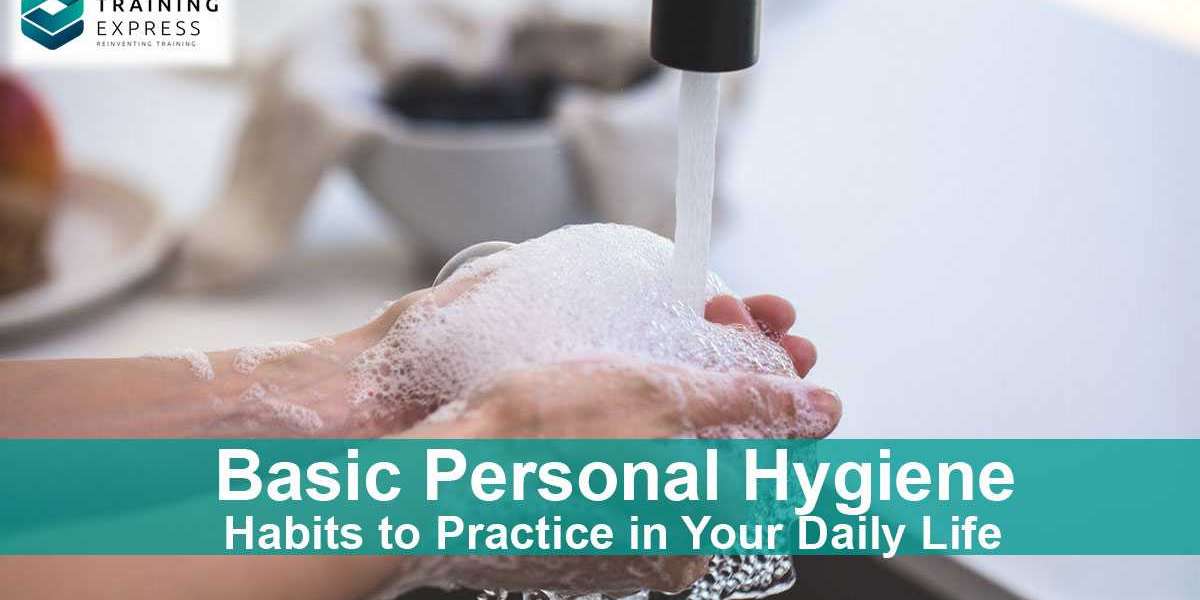How to Build an Effective Personal Hygiene Routine: The Ultimate Guide
Maintaining a consistent and effective personal hygiene routine is essential for physical health, confidence, and well-being. Proper hygiene helps prevent infections, boosts self-esteem, and enhances social interactions. Whether you're just starting to pay more attention to your hygiene or looking to optimize your current routine, understanding the basic principles of personal hygiene and integrating them into your daily life can make a significant difference. Here’s an in-depth guide on how to build an effective personal hygiene routine, broken down into key areas.
1. Start with Daily Showering or Bathing
A basic, yet essential part of your personal hygiene routine is regular showering or bathing. Bathing helps remove sweat, dirt, bacteria, and pollutants from your skin, which keeps you fresh and clean. Showering daily, or at least every other day, should be the foundation of your routine. The frequency might depend on your lifestyle (such as physical activity levels or climate), but it’s important to maintain consistency.
Here are some tips for an effective shower or bath routine:
- Use a gentle body wash: Choose a mild soap or body wash suited to your skin type to avoid dryness or irritation.
- Scrub thoroughly: Use a washcloth, loofah, or sponge to scrub your body, focusing on areas prone to sweat like underarms, feet, and the groin.
- Consider showering after exercise: If you work out or sweat a lot during the day, showering after your workout is a good practice to remove bacteria and sweat buildup.
- Keep your shower space clean: Ensure your shower or bath area is kept clean and dry to prevent mold, bacteria, or fungal growth.
2. Maintain Oral Hygiene
Good oral hygiene is crucial to prevent tooth decay, gum disease, and bad breath. Brushing your teeth twice a day is a fundamental practice, but there are several other elements to a complete oral care routine.
Here's how to maintain optimal oral hygiene:
- Brush twice a day: Use fluoride toothpaste and a soft-bristled toothbrush to clean your teeth for at least two minutes, paying attention to all surfaces of your teeth.
- Floss daily: Flossing removes plaque and food particles between your teeth, which helps prevent cavities and gum disease.
- Mouthwash: Use an antimicrobial or fluoride mouthwash to reduce bacteria and freshen your breath.
- Tongue cleaning: Your tongue can harbor bacteria, which contributes to bad breath. Use a tongue scraper or your toothbrush to clean your tongue.
- Regular dentist visits: Schedule dental checkups every six months to ensure your oral health is on track.
3. Hand Hygiene: Wash Often and Properly
One of the most effective ways to prevent the spread of germs and avoid illness is regular hand washing. Your hands touch surfaces throughout the day and can transfer bacteria and viruses to your face or others if not cleaned properly.
To practice effective hand hygiene:
- Wash with soap and water: Lather soap and rub your hands together for at least 20 seconds. Make sure to clean the front, back, between the fingers, and under the nails.
- Use hand sanitizer: When soap and water aren’t available, use a hand sanitizer with at least 60% alcohol to kill germs.
- Avoid touching your face: Try not to touch your eyes, nose, or mouth with unwashed hands to prevent transferring germs.
Regular handwashing reduces the risk of illnesses like colds, flu, and gastrointestinal infections.
4. Hair Care and Scalp Health
Proper hair care is not just about aesthetics—it’s essential for scalp health and overall hygiene. Dirty or oily hair can lead to scalp irritation and unhealthy hair growth, while over-washing can cause dryness.
To care for your hair:
- Shampoo regularly: Depending on your hair type (oily, dry, curly, straight), wash your hair 2-3 times a week or more if needed. Overwashing can strip hair of natural oils, while too little washing can lead to buildup.
- Condition: Use a conditioner suited for your hair type to keep hair moisturized, especially the ends. Focus conditioner on the lengths of your hair, avoiding the scalp.
- Scalp care: Gently massage your scalp while washing your hair to boost circulation and cleanse the scalp of oil and dirt.
- Protect from heat and sun: If you use heat styling tools or are out in the sun frequently, consider using heat protectant sprays and wearing hats to prevent damage.
5. Nail Care and Hygiene
Healthy nails are a reflection of personal care and can prevent infections or discomfort. Proper nail care is a vital part of your overall hygiene routine, as nails can harbor germs and dirt.
Here's how to maintain clean and healthy nails:
- Trim nails regularly: Keep nails clean and cut them straight to prevent painful snags or infections.
- Clean under your nails: Use a nail brush to scrub underneath your nails, especially after cleaning, cooking, or gardening.
- Avoid biting nails: Nail-biting can cause infections, especially around the nail beds. Try to break this habit by keeping nails trimmed and clean.
- Moisturize cuticles: Use cuticle oil or a hand cream to nourish your cuticles and prevent dryness.
For a polished look, you can apply nail polish, but ensure that your nails are clean and healthy before doing so.
6. Skin Care Routine
Your skin is your largest organ, and taking care of it is essential for both hygiene and aesthetics. Proper skin care helps prevent acne, irritation, and premature aging while keeping your skin hydrated and glowing.
Here’s how to build an effective skincare routine:
- Cleansing: Use a gentle cleanser to wash your face twice a day—morning and night. A good cleanser removes dirt, excess oil, and makeup without irritating the skin.
- Moisturizing: Hydrate your skin with a moisturizer that suits your skin type. Apply it after cleansing to lock in moisture.
- Sun protection: Use sunscreen daily, even on cloudy days, to protect against harmful UV rays that cause aging and increase the risk of skin cancer.
- Exfoliation: Exfoliate your skin once or twice a week to remove dead skin cells and promote smoother skin. Be gentle and choose an exfoliant suitable for your skin type.
Consider seeing a dermatologist for skin concerns like acne, dryness, or sensitivity to get personalized recommendations.
7. Foot Hygiene
Your feet are constantly on the move, and proper foot hygiene is crucial to avoid discomfort and infections. Neglecting foot hygiene can lead to unpleasant odors, fungal infections, and calluses.
To keep your feet clean and healthy:
- Wash feet daily: Clean your feet with soap and water, paying extra attention to the areas between your toes.
- Dry thoroughly: Dry your feet completely, especially between the toes, to prevent fungal infections like athlete’s foot.
- Moisturize: Apply foot cream or lotion to keep your feet hydrated and prevent cracks or dryness.
- Wear clean socks and shoes: Change socks daily and choose shoes that are breathable and comfortable to avoid fungal growth.
Regular foot care can prevent conditions like blisters, calluses, and infections.
8. Maintain a Clean Living Environment
A clean environment contributes to your overall well-being and hygiene. Your home should be regularly cleaned to reduce allergens, dust, and bacteria that can affect your health.
Here’s how to maintain a hygienic living space:
- Vacuum and mop: Regularly clean your floors to remove dirt and debris, especially in high-traffic areas.
- Disinfect high-touch surfaces: Wipe down surfaces like doorknobs, remote controls, and countertops to prevent the spread of germs.
- Wash bedding regularly: Clean your sheets, pillowcases, and towels at least once a week to avoid bacteria buildup.
A tidy home helps create a healthy, stress-free environment.
9. Proper Sleep Hygiene
Sleep hygiene is another vital aspect of personal care that influences your overall health and hygiene. Getting enough restful sleep supports physical recovery, cognitive function, and emotional well-being.
To maintain good sleep hygiene:
- Stick to a schedule: Go to bed and wake up at the same time every day to regulate your body’s internal clock.
- Create a bedtime routine: Engage in calming activities like reading or meditating before bed to prepare your body for sleep.
- Limit screen time: Avoid using electronic devices at least 30 minutes before bed to reduce blue light exposure, which can disrupt sleep.
- Optimize your sleep environment: Make your bedroom comfortable by keeping it dark, cool, and quiet.
Good sleep hygiene ensures you wake up feeling rested and ready to tackle the day.
10. Stay Consistent with Your Routine
Building an effective personal hygiene routine requires consistency. It’s essential to make hygiene a habit and not a one-off task. Integrating hygiene practices into your daily routine will make it easier to stick with them in the long run.
Here are some tips to stay on track:
- Set reminders: Use a planner or phone reminders to keep track of when to wash your hands, shower, or floss.
- Prepare ahead: Lay out your clothes or toiletries the night before to make your hygiene tasks more manageable in the morning.
- Evaluate your routine: Periodically assess your hygiene habits and adjust them based on your changing needs.
Consistency is key to creating a lasting routine that promotes both cleanliness and confidence.
Conclusion
Building an effective personal hygiene routine requires attention to various aspects of your life, from showering and oral care to skin health and maintaining a clean living environment. By integrating these habits into your daily routine and staying consistent, you will not only improve your hygiene but also feel more confident and energized. Personal hygiene is an ongoing process that influences your health and self-esteem, so make it a priority and take pride in your care for your body.
If you’re looking for more self-care and hygiene tips, visit Venzec.icu for expert advice and product recommendations.







